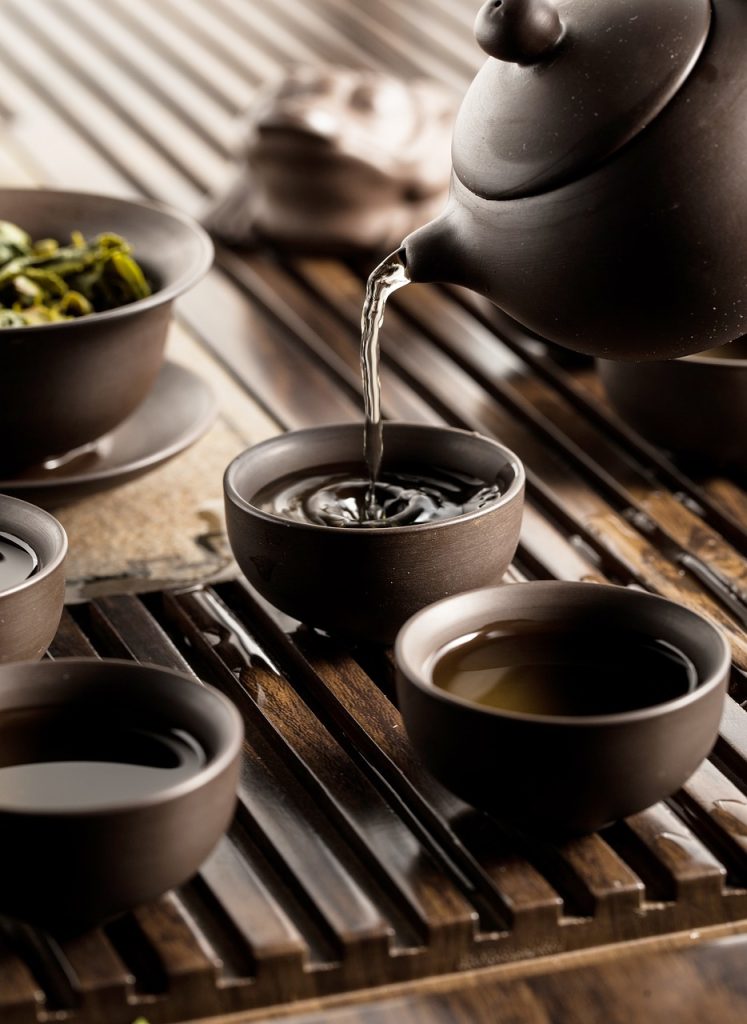Korean tea (차, cha) is much more than just a beverage; it’s a significant part of Korean culture, history, and traditional medicine, known as Hanbang (한방). Unlike Western teas that often come from the Camellia sinensis plant (like green tea or black tea), many Korean teas are infusions made from fruits, grains, roots, herbs, and other plant parts. They are traditionally consumed for their specific health benefits, which is a core part of their purpose.

- Insam-cha (인삼차) – Ginseng Tea:
- Benefits: Boosts energy, stamina, and immune function; reduces fatigue; improves mental focus; antioxidant properties; may help regulate blood sugar. (Caution: Can be stimulating, avoid with high blood pressure or caffeine sensitivity).
- Saenggang-cha (생강차) – Ginger Tea:
- Benefits: Aids digestion, relieves nausea and motion sickness; reduces inflammation; boosts circulation; warms the body; helps fight colds and sore throats; antioxidant and antimicrobial properties.
- Yuja-cha (유자차) – Citron/Yuzu Tea:
- Benefits: Extremely high in Vitamin C, boosting immunity; helps prevent and fight colds/flu; aids digestion; antioxidant properties; soothes sore throats; uplifting flavor.
- Maesil-cha (매실차) – Green Plum Tea:
- Benefits: Aids digestion and relieves indigestion; helps detoxification; alkalizing effect; rich in organic acids and minerals; may help reduce fatigue.
- Mogwa-cha (모과차) – Quince Tea:
- Benefits: Soothes coughs and sore throats; aids digestion; rich in Vitamin C and antioxidants; helps reduce phlegm.
- Omija-cha (오미자차) – Five-Flavor Berry Tea (Schisandra):
- Benefits: Adaptogen (helps body resist stress); supports liver health; antioxidant; may improve mental clarity and concentration; boosts immunity; unique sweet, sour, salty, bitter, pungent taste.
- Ssanghwa-cha (쌍화차) – Ssanghwa Tea:
- Benefits: A classic restorative tonic blend. Replenishes energy (“기” – Gi); improves blood circulation; warms the body; relieves fatigue, aches, and pains (especially in women after childbirth or during menstruation); supports overall vitality.
- Baechohyang-cha (배초향차) / Gyeolmyeongja-cha (결명자차) – Cassia Seed Tea:
- Benefits: Traditionally used to support eye health and reduce “heat” in the body; mild laxative effect; aids digestion; may help lower blood pressure and cholesterol.
- Gugija-cha (구기자차) – Goji Berry Tea:
- Benefits: Rich in antioxidants (zeaxanthin, lutein) supporting eye health; boosts immunity; may improve circulation and skin health; contains vitamins and minerals.
- Daechu-cha (대추차) – Jujube (Korean Date) Tea:
- Benefits: Calms nerves and promotes restful sleep; nourishes the blood; aids digestion; rich in vitamins (especially C) and minerals; strengthens the spleen and stomach according to Hanbang.
- Gamro-cha (감로차) – Licorice Root Tea:
- Benefits: Soothes sore throats and coughs; has anti-inflammatory properties; traditionally used to harmonize herbal formulas and improve taste; supports adrenal function. (Caution: High doses/long-term use can raise blood pressure).
- Chrysanthemum Tea (국화차 – Gukhwa-cha):
- Benefits: Cools the body and reduces “heat”; soothes headaches and red eyes; antioxidant; mild calming effect.